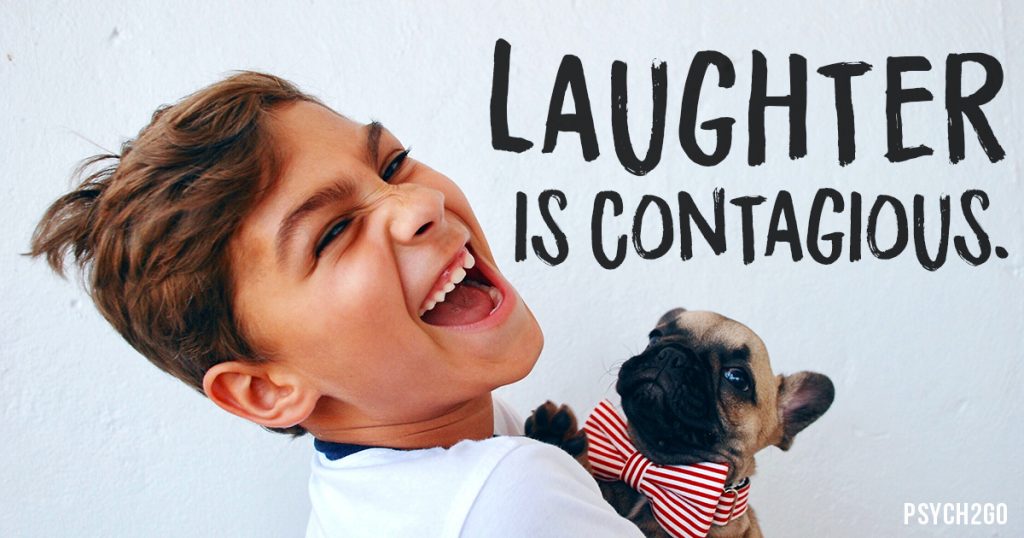Why Laughter Is Contagious

Imagine this. You’re watching TV alone and you see some celebrity you didn’t like make a joke. You didn’t laugh. Your best friend tells you the exact same joke to your friend group, years later. Now, it’s the funniest joke in the world. Why is this?
Contrary to what you may believe, laughter is not solely dependent on how funny a joke is. Neuroscientist Sophie Scott says that most laughter is due to the social circumstances. She believes that we don’t laugh at jokes, but we laugh to show others we understand them, agree with them and we like them. This shows why we are more likely to laugh at a friend than a stranger.
Research suggests that the younger you are, the more contagious the laughter is. As you get older, laughter becomes less contagious. The reason for this could be because older people understand laughter better. Older people are more likely to be able to tell the difference between posed and real laughter due to past experience. Therefore, they do not feel the need to respond with laughter upon witnessing it.
Science

In 2007, a fMRI scanner measured how volunteer’s brains responded to a variety of sounds. These sounds were either positive (e.g. laughter) or negative (e.g. screaming.). The sounds evoked a reaction in the premotor cortical region of their brains, the area that encourages facial muscles to move. The highest response was for positive, giving us insight into why we laugh when we hear someone tell a joke.
There is research that suggests that laughter was used as a precursor to language by our ancestors to show that they meant no harm. This shows how laughter was not used to benefit us but to be accepted by potential threats.
In 1974, a study showed that people were more likely to find jokes funny when in a group. This could be why we find pleasure when watching movies as the characters are relatable and we feel like we know them.
Can contagious laughter benefit us?

Robert Vellington conducted a longitudinal study upon stressful conversations with couples. He found that couples who laughed during their stress made each other feel better. This shows how laughing together can be relaxing and bring couples closer together.
Studies have shown that embarrassing situations can be lessened by laughter. If your friend falls over and you respond by laughing, provided they are not seriously hurt, they might start laughing, too. The power of laughing at yourself can work to reduce your humiliation and prevent an entire loss of dignity.
An epidemic

In 30th January 1962, in a boarding school in Tangayika , three young girls began giggling at a joke. Their laughter spread throughout 95 out of 159 of the students, who spread it to their parents once they left. One child laughed for sixteen days straight. The school was closed temporarily as it spread to home villages, affecting hundreds of people.
The cause of this was theorized to be mass hysteria, or mass psycho-genetic illness. It was indicated to have an underlying stress component, supposedly due to the fact that Tangayika had just won independence and students were suffering from high expectations from teachers and parents.
So next time you laugh in a social situation, think about why you’re laughing. Did you really think that joke was funny or were you just trying to please who you were with?
Edited by Viveca Shearin



Responses